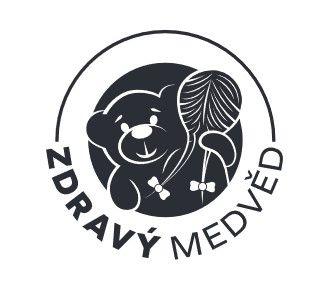Vitamin B2, riboflavin
Vitamin B2
Synonym: riboflavin
Characteristics: Its name reflects both its structure and color: “ribo” refers to the presence of a ribose side chain, and flavus is Latin for yellow. Riboflavin is one of the B vitamins that are soluble in water. It occurs naturally in some foods, is added to some food products, and is available as a dietary supplement. This vitamin is an essential component of two major coenzymes that play a major role in energy production, cell function, growth, development, and the metabolism of fats, drugs, and steroids. Also, the conversion of the amino acid tryptophan to niacin (vitamin B3) and the conversion of vitamin B6 requires the presence of riboflavin.
Absorption: Most riboflavin is absorbed in the small intestine. The body stores only small amounts of riboflavin in the liver, heart, and kidneys. When excessive amounts (>25 mg) are consumed, either B2 is not absorbed or the small amount that is absorbed is excreted in the urine. Absorption is increased by the presence of bile and the consumption of fresh food and hindered by the presence of divalent metals (zinc, iron, copper and manganese), as well as alcohol.
Dietary Supplements: Multivitamin/multimineral supplements with riboflavin typically provide 1.3 mg of riboflavin. In most supplements, riboflavin is in free form, but some supplements contain riboflavin 5'-phosphate.
Natural sources: Bacteria in the colon produce free riboflavin, which can be absorbed by the colon in amounts that depend on the diet. More riboflavin is formed after eating plant-based foods than meat-based foods. Foods that are particularly rich in riboflavin include eggs, viscera (kidney and liver), lean meat and milk. Some vegetables and mushrooms also contain riboflavin. The maximum bioavailable riboflavin that the body can take in is about 27 mg per meal or dose. Because riboflavin is water-soluble, about twice as much riboflavin is lost by cooking in water as by cooking foods other ways. It is sensitive to light (including sunlight) and alkaline conditions. But it is resistant to heat, oxidation, and acids, so most methods of sterilization, canning and cooking do not affect the content of riboflavin.
Effect: Vitamin B2 is essential for health and participates in many different biochemical processes in the body. Research has suggested that when taken in high doses, it can significantly reduce the incidence of migraines.
Flaw: It is extremely rare. In addition to inadequate intake, deficiency can develop with chronic diarrhea, liver disease, chronic alcoholism, drug use, oral contraceptive use, adrenal or thyroid hormone insufficiency, hyperthyroidism, anorexia nervosa, and post-surgical conditions. In most cases, riboflavin deficiency is accompanied by other vitamin deficiencies, such as pyridoxine, niacin, and folic acid deficiencies. Drugs that impair the absorption or utilization of riboflavin include tricyclic antidepressants, chemotherapy drugs, and psychotropic agents. There is also evidence that riboflavin requirements increase with increased exercise. Deficiency symptoms include fatigue, skin disorders, hyperemia (congestion) and edema of the mouth and throat, lesions at the corners of the mouth, cheilosis (swollen, cracked lips), hair loss, reproductive problems, sore throat, itching and red eyes, liver degeneration, change personality and nervous system disabilities. If riboflavin deficiency is severe and long-term, anemia and cataracts may develop. People with a limited intake of meat and dairy products have an increased risk of B2 deficiency.
Recommended daily dose: adult: 1.3 mg for men, 1.1 mg for women (1.4 mg during pregnancy, 1.6 mg during breastfeeding).
Side effects: diarrhea, increased urination.
Interactions: Antibiotics can reduce the endogenous production of B vitamins (they also kill beneficial bacteria). Oral contraceptives may increase the consumption of vitamin B2. Tricyclic antidepressants reduce B2 absorption.
Pregnancy: safe at usual doses.
Breastfeeding: safe at usual doses.
Toxicity: Excessive dietary intake of riboflavin has not been observed to be toxic, probably because the solubility of riboflavin and its ability to be absorbed in the gastrointestinal tract are limited. Adverse effects have not been reported even with an intake of 400 mg/day for at least 3 months.
Caution: Ingestion of vitamin B2 causes characteristic fluorescent yellow-orange coloration of urine.
Vitamin B2, riboflavin
Chat with us on WhatsApp



